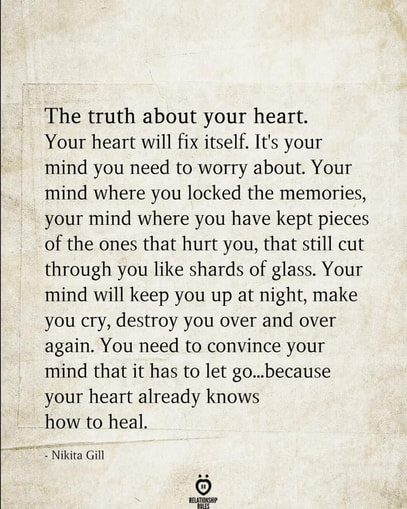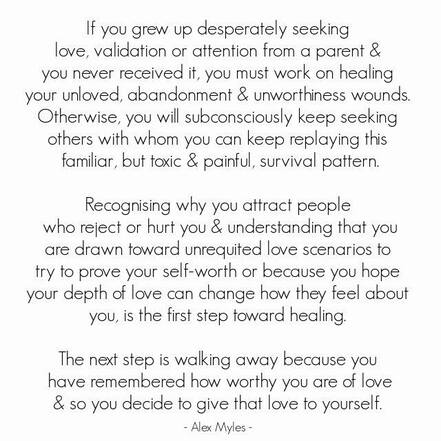Complex PTSDComplex PTSD is relatively new to the world of psychology and has been recently proposed as a distinct clinical entity in the World Health Organization International Classification of Disease and I am a poster child for it. According to the World Journal of Psychiatry, Complex PTSD is related to complex trauma which is defined by its threatening and entrapping context, generally interpersonal in nature. Complex PTSD, has been originally proposed as a clinical syndrome following precipitating traumatic events that are usually prolonged in duration and mainly of early life onset, especially of an interpersonal nature and more specifically consisting of traumatic events taking place during early life stages (i.e., child abuse and/or psychological neglect).
With that being said, I highly encourage people to watch the videos above on Childhood Trauma because C PTSD normally starts there. I also must give a huge kudos to Tim Fletcher of FindingFreedomMedia for the extensive work he has done on the topic. |
To expand on the description, here is information from Kati Morton's video on C-PTSD: The Veteran's Administration and the center for PTSD lobbied to get this diagnosis put into the DMS 5 but the APA did not agree, and so we only have PTSD (mild, moderate, & severe) to work with. The state that those who suffer from complex PTSD have more issues with:
The treatment is pretty much the same as it is for PTSD, however there is an intense focus on interpersonal difficulties. They focus on this because those with repeated trauma have more trouble trusting, not lashing out, feeling safe, and managing their feelings of shame and guilt. By focusing on these things, we can hopefully help those with Complex PTSD better understand their situation and manage their relationships. I hope this not only helps those of use struggling with this, but also raise awareness for the seriousness of it so it can be taught and better managed by professionals.
In the Adverse Childhood Experiences (ACE) study by Kaiser Permanente and the Centers for Disease Control and Prevention, 17,337 HMO members responded to a questionnaire about adverse childhood experiences, including childhood abuse, neglect, and family dysfunction. Eleven percent reported having been emotionally abused as a child, 30.1% reported physical abuse, and 19.9% sexual abuse. In addition, 23.5% reported being exposed to family alcohol abuse, 18.8% were exposed to mental illness, 12.5% witnessed their mothers being battered, and 4.9% reported family drug abuse.
The ACE study showed that adverse childhood experiences are vastly more common than recognized or acknowledged and that they have a powerful relationship to adult health a half-century later. The study confirmed earlier investigations that found a highly significant relationship between adverse childhood experiences and depression, suicide attempts, alcoholism, drug abuse, sexual promiscuity, domestic violence, cigarette smoking, obesity, physical inactivity, and sexually transmitted diseases. In addition, the more adverse childhood experiences reported, the more likely a person was to develop heart disease, cancer, stroke, diabetes, skeletal fractures, and liver disease.
Furthermore, in an article published by the U.S. Department of Veteran's Affairs, Complex PTSD is recognized as chronic trauma that continues or repeats for months or years at a time. The current PTSD diagnosis often does not fully capture the severe psychological harm that occurs with prolonged, repeated trauma. People who experience chronic trauma often report additional symptoms alongside formal PTSD symptoms, such as changes in their self-concept and the way they adapt to stressful events. These exposures often occur within a child’s caregiving system and include physical, emotional, and educational neglect and child maltreatment beginning in early childhood.
Dr. Judith Herman of Harvard University suggests that a new diagnosis, Complex PTSD, is needed to describe the symptoms of long-term trauma. Another name sometimes used to describe the cluster of symptoms referred to as Complex PTSD is Disorders of Extreme Stress Not Otherwise Specified (DESNOS). A work group has also proposed a diagnosis of Developmental Trauma Disorder (DTD) for children and adolescents who experience chronic traumatic events.
- Emotion regulation
- Forgetting traumatic events completely
- Self-perception (feel very ashamed and guilty for struggling with this and not feeling "okay" like everyone else).
- Distorted perceptions of their perpetrators
- Relations with others (they may isolate or struggle to trust people)
- Their own sense of meaning (may feel hopeless and struggle to have faith).
The treatment is pretty much the same as it is for PTSD, however there is an intense focus on interpersonal difficulties. They focus on this because those with repeated trauma have more trouble trusting, not lashing out, feeling safe, and managing their feelings of shame and guilt. By focusing on these things, we can hopefully help those with Complex PTSD better understand their situation and manage their relationships. I hope this not only helps those of use struggling with this, but also raise awareness for the seriousness of it so it can be taught and better managed by professionals.
In the Adverse Childhood Experiences (ACE) study by Kaiser Permanente and the Centers for Disease Control and Prevention, 17,337 HMO members responded to a questionnaire about adverse childhood experiences, including childhood abuse, neglect, and family dysfunction. Eleven percent reported having been emotionally abused as a child, 30.1% reported physical abuse, and 19.9% sexual abuse. In addition, 23.5% reported being exposed to family alcohol abuse, 18.8% were exposed to mental illness, 12.5% witnessed their mothers being battered, and 4.9% reported family drug abuse.
The ACE study showed that adverse childhood experiences are vastly more common than recognized or acknowledged and that they have a powerful relationship to adult health a half-century later. The study confirmed earlier investigations that found a highly significant relationship between adverse childhood experiences and depression, suicide attempts, alcoholism, drug abuse, sexual promiscuity, domestic violence, cigarette smoking, obesity, physical inactivity, and sexually transmitted diseases. In addition, the more adverse childhood experiences reported, the more likely a person was to develop heart disease, cancer, stroke, diabetes, skeletal fractures, and liver disease.
Furthermore, in an article published by the U.S. Department of Veteran's Affairs, Complex PTSD is recognized as chronic trauma that continues or repeats for months or years at a time. The current PTSD diagnosis often does not fully capture the severe psychological harm that occurs with prolonged, repeated trauma. People who experience chronic trauma often report additional symptoms alongside formal PTSD symptoms, such as changes in their self-concept and the way they adapt to stressful events. These exposures often occur within a child’s caregiving system and include physical, emotional, and educational neglect and child maltreatment beginning in early childhood.
Dr. Judith Herman of Harvard University suggests that a new diagnosis, Complex PTSD, is needed to describe the symptoms of long-term trauma. Another name sometimes used to describe the cluster of symptoms referred to as Complex PTSD is Disorders of Extreme Stress Not Otherwise Specified (DESNOS). A work group has also proposed a diagnosis of Developmental Trauma Disorder (DTD) for children and adolescents who experience chronic traumatic events.
- Complex Trauma: Understanding and Treatment / FOCL Online. Historically, when someone has experienced trauma that has a lasting impact, they have been diagnosed with Posttraumatic Stress Disorder (PTSD). In recent years those who work with trauma victims have advocated for an additional category: Complex Trauma.
- C-PTSD Behavior Explained - Common Traits, Triggers & Treatment Options / BetterHelp. People with C-PTSD might engage in people-pleasing behavior to keep relationships. If you’re living with C-PTSD, seeking therapy can help you.
- Complex PTSD - Post Traumatic Stress Disorder / Kati Morton. See her awesome description above.
- Cure C-PTSD - A new model for healing C-PTSD symptoms (series) / Richard Grannon.
- Symptoms of CPTSD Complex Post Traumatic Stress Disorder / Poking Holes CPTSD Warrior.
- The Long Arm of Childhood Trauma / Mount Sinai Health System. Saturday Night Live veteran Darrell Hammond, filmmaker Michelle Esrick, and Mount Sinai psychologist Jacob Ham, PhD, discuss childhood trauma, complex post-traumatic stress disorder (PTSD) and healing.
- Tim Fletcher's Talk on Codependency and Complex Trauma (Series) / FindingFreedomMedia. Individuals who have C-PTSD struggle with self-soothing. They can struggle with intense anxiety issues, such as panic attacks. Their anxiety can feel overwhelming, and it translates into interpersonal relationships. They can worry about abandonment, and as a result, hesitate from expressing their feelings.
- Tim Fletcher's Talk on Complex Trauma (Series) / FindingFreedomMedia.
- Tim Fletcher's Talk on Complex Trauma - New Thoughts About Complex Trauma (series) / FindingFreedomMedia.
- Tim Fletcher's Talk on Complex Trauma's Fifty Characteristics (Series) / FindingFreedomMedia.
- What is Complex-PTSD? / Better Help. Complex PTSD is different from PTSD. With PTSD, there’s typically one traumatic incident that an individual is dealing with; however, Complex PTSD is a diagnosis that occurs when a person experiences repeated episodes of trauma. The individual has experienced several traumatic incidents which may have happened over the years. Their symptoms can be more severe than someone who has PTSD. The reason for this is that their trauma is repeated and prolonged.

